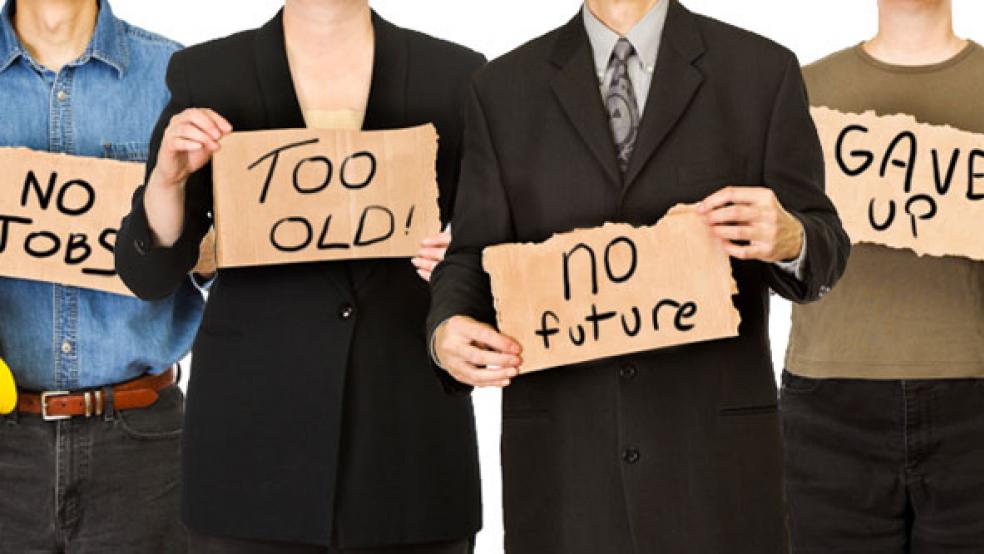Employers cut back on hiring in April and more people stopped looking for work, troubling signs for President Barack Obama whose re-election prospects could hinge on his handling of the economy. Employers added 115,000 workers to payrolls last month, the Labor Department said on Friday. It was the third straight month in which hiring had slowed, intensifying fears the U.S. recovery is losing momentum.

Even a slight drop in the unemployment rate to 8.1 percent had a dark tone because the fall was due entirely to people dropping out of the workforce."The bottom line is you don't have evidence that this economy has reached escape velocity," said Robert Tipp, an investment strategist at Prudential Fixed Income.
Analysts had expected 170,000 new jobs in April, and the shortfall could open the door a bit wider for the Federal Reserve to step up efforts to help the economy. Major U.S. stock indexes tumbled, with the broad S&P index ending down more than 1.5 percent and yields on benchmarkU.S. government bonds sliding to lows not seen in months.Still, the report was not all negative. The government revised upward earlier estimates for payroll growth in February and March by a combined 53,000 jobs.
POLITICAL ECONOMY
The report could rattle nerves at the White House. Weak U.S. growth and high unemployment create a formidable headwind for Obama, who entered office during the darkest days of the 2007-09 recession. Obama, who will hold his first campaign rallies on Saturday, said he would urge Congress next week to implement "common-sense ideas" to accelerate job growth. "We've got to do more if we're going to recover all the jobs lost in the recession," he told a group of students in the Washington suburb of Arlington, Virginia.
Obama's Republican challenger, Mitt Romney, repeated accusations that Obama has not done enough to help Americans get back to work. "We seem to be slowing down, not speeding up. This is not progress. This is very, very disappointing," he told Fox News.
RELATED: The American Entrepreneur: A Dying Breed?
The unemployment rate, which soared to as high as 10 percent during Obama's first year in office, held near 9 percent for most of last year before falling sharply over the winter.The decline had raised hopes that the economy had turned a corner. Those hopes dimmed on Friday. Even with the latest decline, the jobless rate remains about 2 percentage points higher than its average over the last 50 years, and the Fed thinks the labor market probably won't be at full health until at least after 2014.
Fed Chairman Ben Bernanke said last month the U.S. central bank is providing enough support for the economy but kept open the possibility of a fresh round of bond purchases to lower borrowing costs should the economy weaken. "They obviously are going to be on guard now that employment growth is not picking up," said Sean Incremona, an economist at 4Cast.
UNDER PRESSURE
Many economists think the weakness evident in the labor market over the last few months is largely payback for stronger hiring during a mild winter. That would temper fears the economy is losing steam. Still, the employment report included several ominous numbers. The participation rate, a measure of how many Americans are looking for work, fell to a 30-year low at 63.6 percent of the population. The retirement of baby boomers has helped push that rate lower but many people also have stopped looking for work because they are discouraged by a sour jobs market. People must be actively seeking work to count as part of the labor force.
The report also showed government payrolls contracted by 15,000, the biggest loss since November. Public payrolls have been under pressure as politicians worry about heavy debt loads and lackluster tax revenues.
The private sector added 130,000 new positions, with manufacturing adding a strong 16,000 jobs. Jobs in transportation and warehousing shrank by almost 17,000.
Additional reporting by Luciana Lopez and Chris Reese



